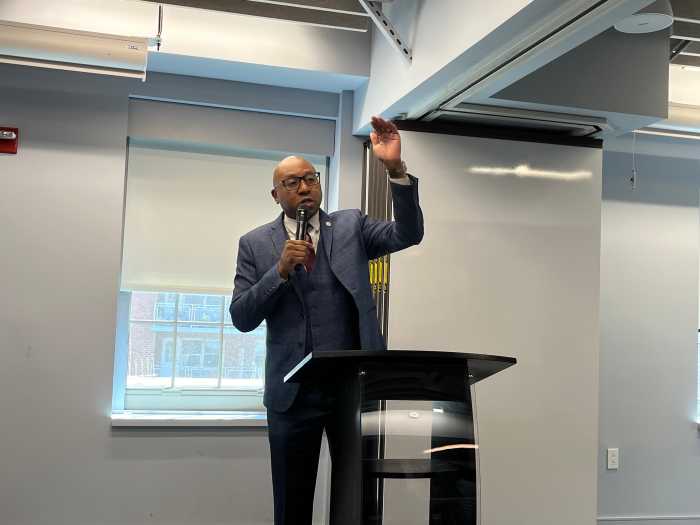Fifteen more families in apartment complexes throughout Jamaica have joined the fight against their landlord, who they said constantly harasses them for money.
In December 2011, tenants of 90-36 149th Street filed suit against Zara Realty, which manages the building complex. Among the host of complaints, the tenants alleged unfair and repeated rent increases and a laundry list of basic repairs left disregarded.
Now, Robert McCreanor, director of legal services at the Catholic Migration Office — which represents the tenants — said the agency has asked the court to allow 15 more families from four other buildings managed by Zara Realty to be added to the lawsuit.
According to McCreanor, more tenants reached out to Catholic Migration, saying they are constantly being charged and harassed for bills they don’t owe. McCreanor said the tenants have been taken to court by their landlord, are regularly sent automated calls many times a day and have even been threatened to be reported to the credit bureau.
“This is a big problem,” said Eduardo Barahona, executive director of Centro Hispano Cuzcatlan — an advocacy group working directly with the tenants. “It’s frustrating that we still can’t stop this harassment after so many years.”
Barahona said he has been helping these tenants for close to 10 years, battling the same landlord and the same issues. He said he helps connect the tenants to Catholic Migration due to the fact that the majority of them predominantly speak Spanish.
“I hope there will be some kind of resolution. I hope things will be better,” Barahona said.
Meanwhile, George Subraj, president of Zara Realty, said the accusations are false.
“That’s not true. To harass someone for money, it’s a big, big thing,” he said. “You have to have just and proper cause. They have to actually owe the money. We have to prove that. I can justify that the moneys are indeed owed.”
According to Subraj, rent is due for each tenant at the first of every month. While residents have a five day grace period, he said any late payments after five days warrant “an oral demand” in the form of a telephone call once a month and then a legal, written demand if the first goes unanswered.
However, he said he has never called tenants more than once a month if they owe money, and he denied sending any automated calls.
Subraj did admit to taking several tenants to court due to “chronic non-payments.”
“One tenant was 40 times late with payment, and another was three months late,” he said, adding that some tenants are now under lenient court-ordered repayment plans. “We are really meticulous, and a lot of people don’t like that.”
McCreanor said the motion to add the extra families is pending and a decision would be reached by March 8.




































